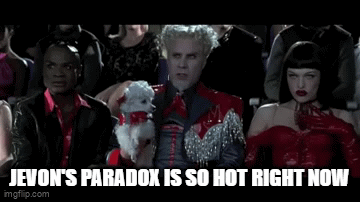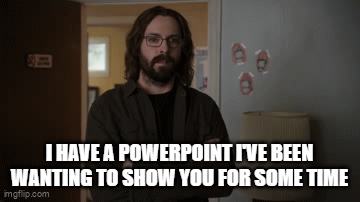Click here to for the rest of the series.
As the fighting in Ukraine enters its third year, debate continues over what lessons to take from the conflict. The outset of the war revived a debate as old as combat itself: Is offense or defense the superior form of fighting?(1)1 Throughout the back and forth of Russian and Ukrainian campaigns, pundits on both sides have found evidence to bolster their arguments.(2) The 2023 “failure of the Ukrainian offensive” was seen as a sign offense was dead.(3) This death turned out to be, like Mark Twain’s, “an exaggeration” when the following summer Ukraine rapidly seized ground in the Russian enclave of Kursk.(4)
The offense versus defense debate misses the true shift in the character of armed conflict. This turn, not unique to the fighting in Ukraine, was spotted by RUSI researcher Jack Watling in the Armenian and Azerbaijani 2021 conflict over the Nagorno-Karabakh enclave.
“How do you maneuver into contact with your force at a sufficient level of combat effectiveness to take the objective that is set for you? And then how do you sit on that objective without just being persistently attrited by the range of capabilities that are now available to find you and strike you? I don't think it's a defense offense issue.”(5)
Put plainly, you need mass to take and to defend objectives; but that same mass gets you killed.
That’s the intro to the paper I owe the Army War College this spring.
The paper examines how cheap drones have changed the way mass works on today’s battlefield. It’s something I’ve been picking at for almost four years, starting back in 2021 when, in the middle of a set of front squats, I heard Jack Watling make the above assertion.2 It blew my mind.
Today the back and forth in the pundit circles about whether or not there are lessons the US can learn from Ukraine has devolved a lot. It’s too often just bad faith strawmen arguments, with each side effectively just rebutting the other with ‘Nuh uh’.
My first run at the paper didn’t improve much on this formula. But then I stumbled onto Aaron Barlows’s excellent post about Hughes’ Salvo Equations over at the Substack War Quants.3
That led me to Lanchester’s laws, which gave me an underlying theory for why things were changing. But I still needed the what.
Then Deepseek dropped over Christmas, and in the aftermath, Microsoft CEO Satya Nadella revived a 160-year-old British Economist with a tweet about Jevon’s Paradox. Michael Horowitz’s Foreign Affairs Battles of Precise Mass article covers the impact of drones, but it missed the impact that ‘cheap’ has had.
Hughes Salvo Equations? Lanchester’s Laws? Jevon’s Paradox? This is all super nerdy niche stuff.
But then you came here for that. You liked hearing about how to leverage data to make the army better. Then you stuck around through nine posts about how data can improve your fitness. Face it, you’re a nerd too.
The paper I owe is only 5,000 works, but I’m allowed to go up to 8,000 under specific conditions. I ended up needing the extra words, because I wanted to start sketching out some of the impacts this change is driving.
But man, I loathe writing academically. The Army War College is very particular about things like the Chicago style guide.4 They also insist on utilizing highfalutin verbosity. Memes and gifs are definitely not allowed.
I think there’s enough to dig on here that it could easily be a whole PhD research project. But I’m not doing that, partly because I don’t want to wait three-to-seven years to get this idea out there.5 Regardless, my war college paper will get read by five … maybe six people? Meanwhile, any dissertation I write might get read by at most ten times that. Telling 50 people seven years from now isn’t going to drive the change I think we need.
So, while I work on the paper I need to submit, I’ve decided to also break it out into a series of posts here. I want to open it up to you all. Critique it where you see weakness and offer your own insights where you see convergence. I’ll never turn down more sources I might have missed.
Is it cliche for a person to want to talk incessantly about their dissertation?6 Yup. Am I going to do it anyways? Yup.
Over the next several posts I’ll lay out the underlying formulas and theory, map the trends that drove the rise of cheap mass, and then look to tomorrow and try to predict what we need to get ready for.
See you next week.
I’ve cited over 100 sources as part of AWC my paper, which means the funny footnotes would get buried. As an alternative, I’m going to have a running M.X: Mass Effect End Notes post where those curious can find my sources and academic footnotes.
This makes ‘Mass Effect’ the second longest I’ve taken to write something. The first is a FICINT sci-fi thing started back in 2019 about AI. It’s still in edits.
In my original post, I misattributed the author to “Fire Effectively First’, but have since corrected it. That said, War Quants is a phenomenal source for all things war and data, and well worth a follow. Thanks to the whole team for a great substack.
A free Downrange Data magnet to anyone who can explain to me why there is a completely different format in the Chicago style for footnotes versus the one you’re supposed to use in the bibliography. Swapping all those commas for periods just seems so inefficient.
I’m also not doing a PhD because I watched the work my wife/editor just slogged through to get her doctorate last summer and no thank you.










I think you are on to something as it relates to mass. War is about attrition. Whether it's men, weapons, equipment, or finances, the loser is whoever runs out of those first.
Looking forward to the next post in the series